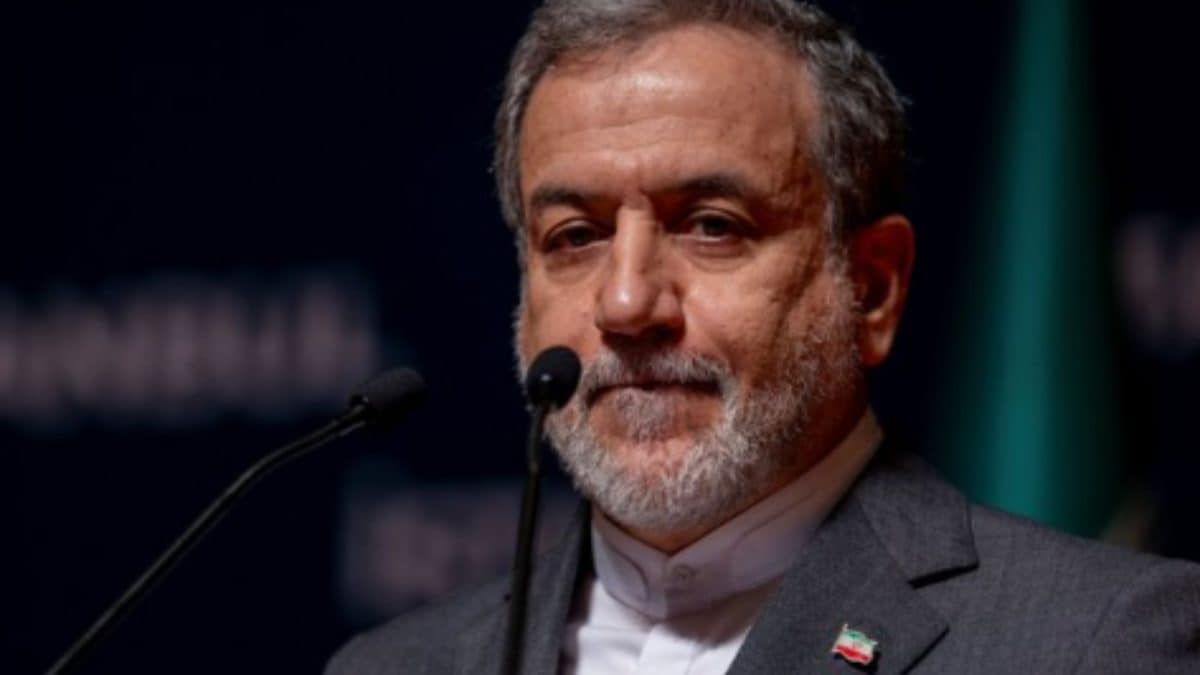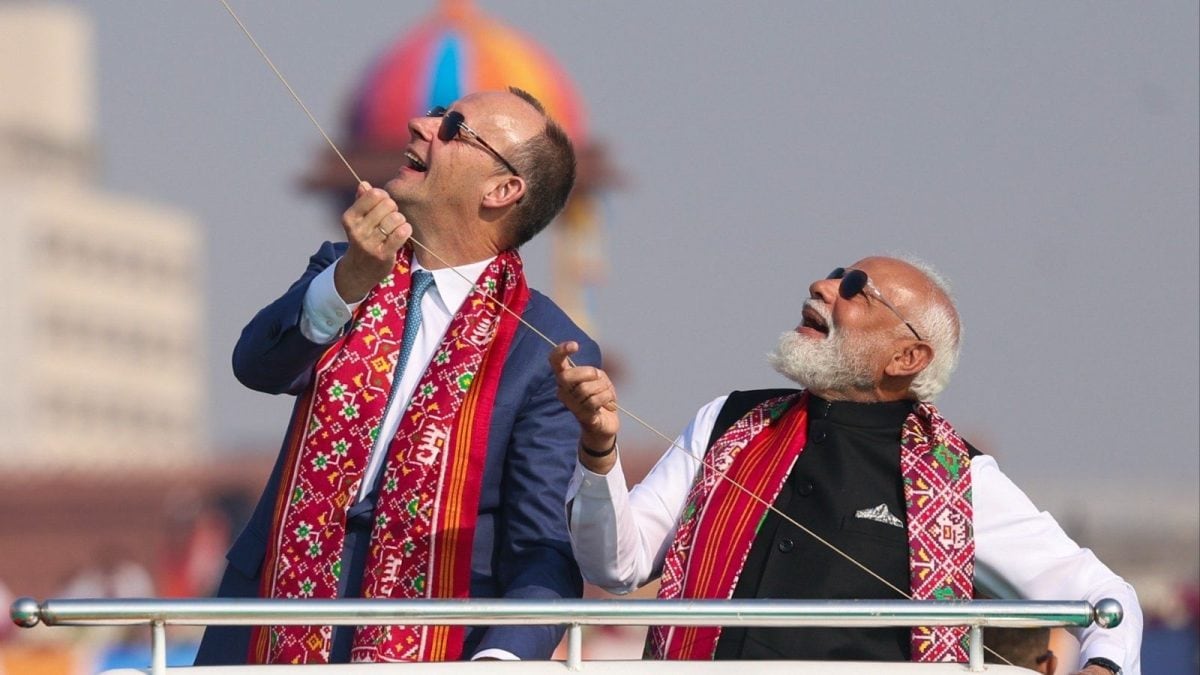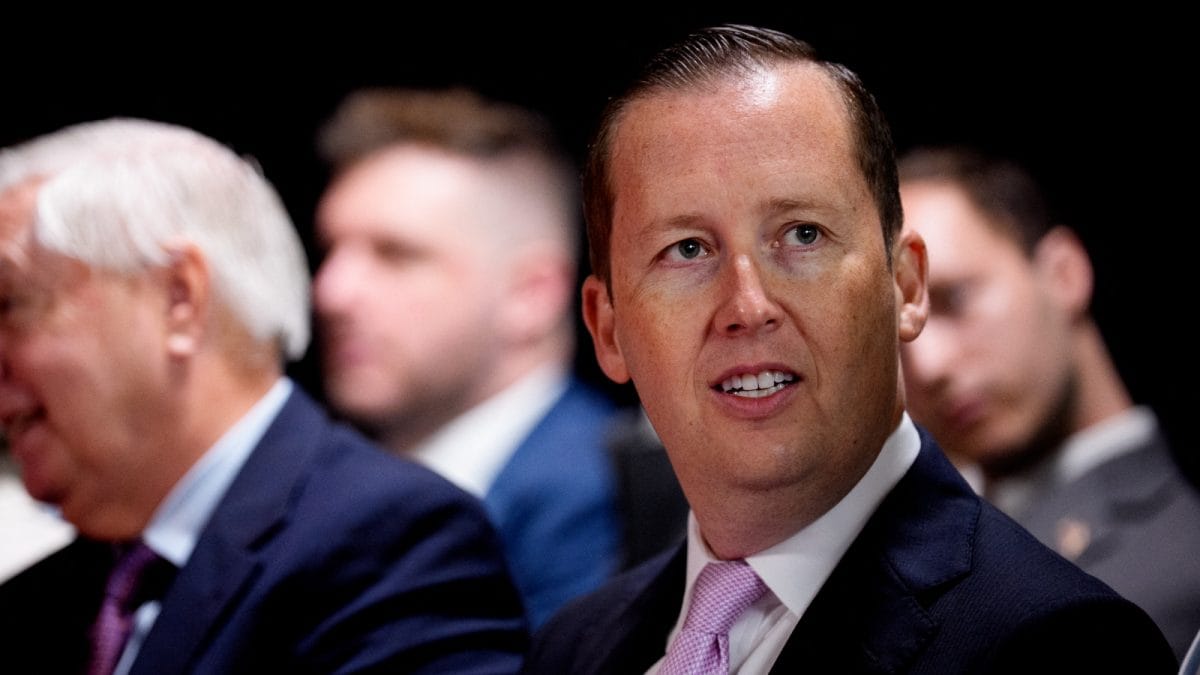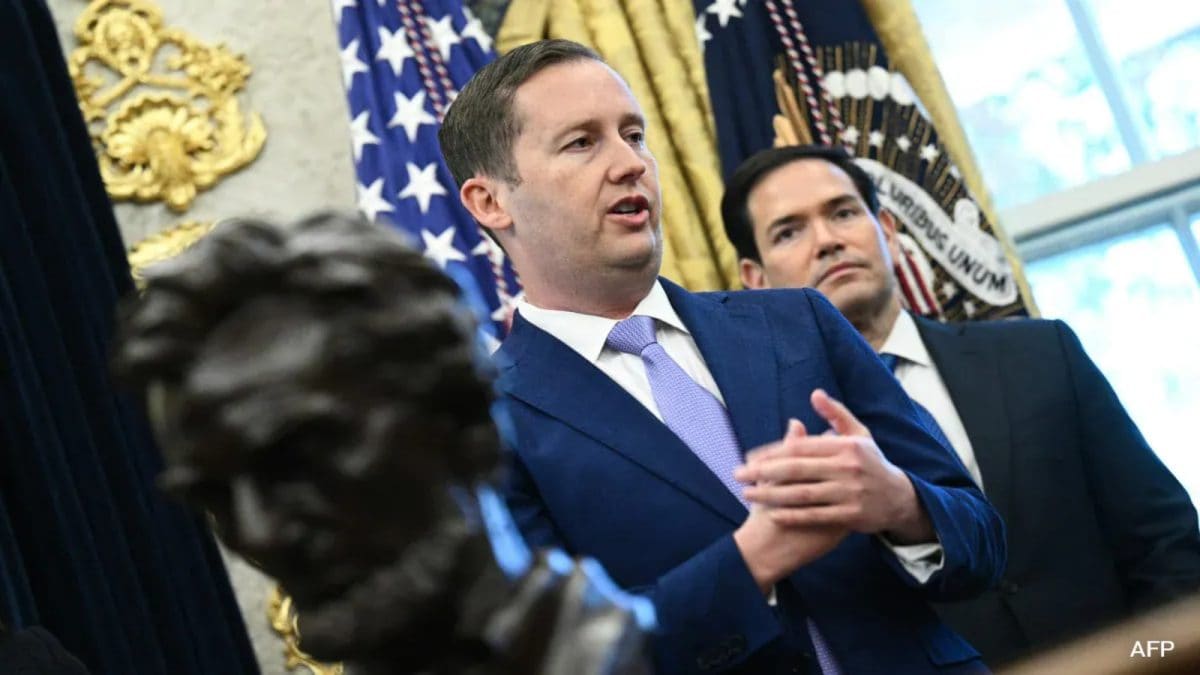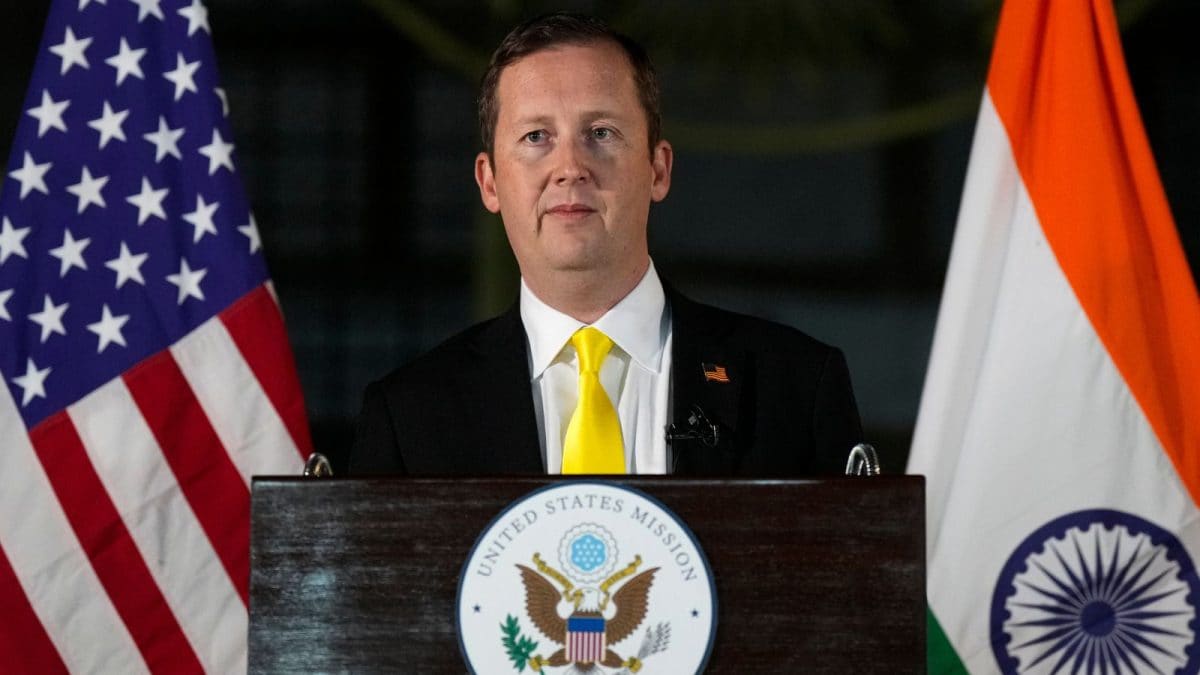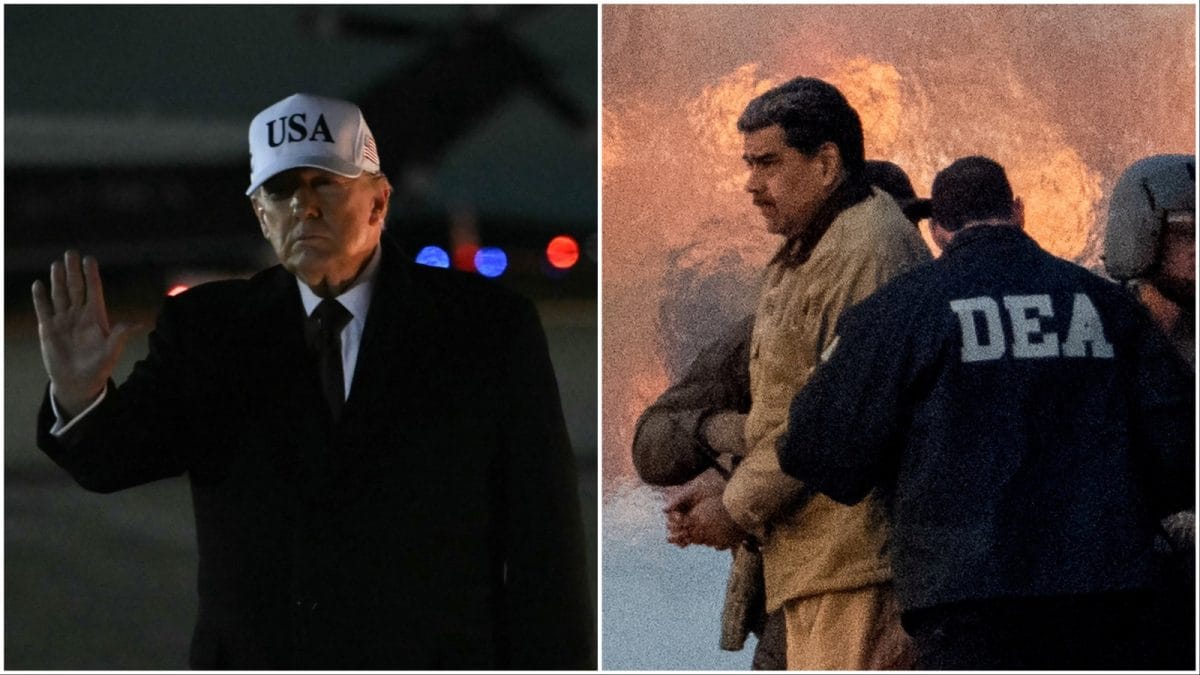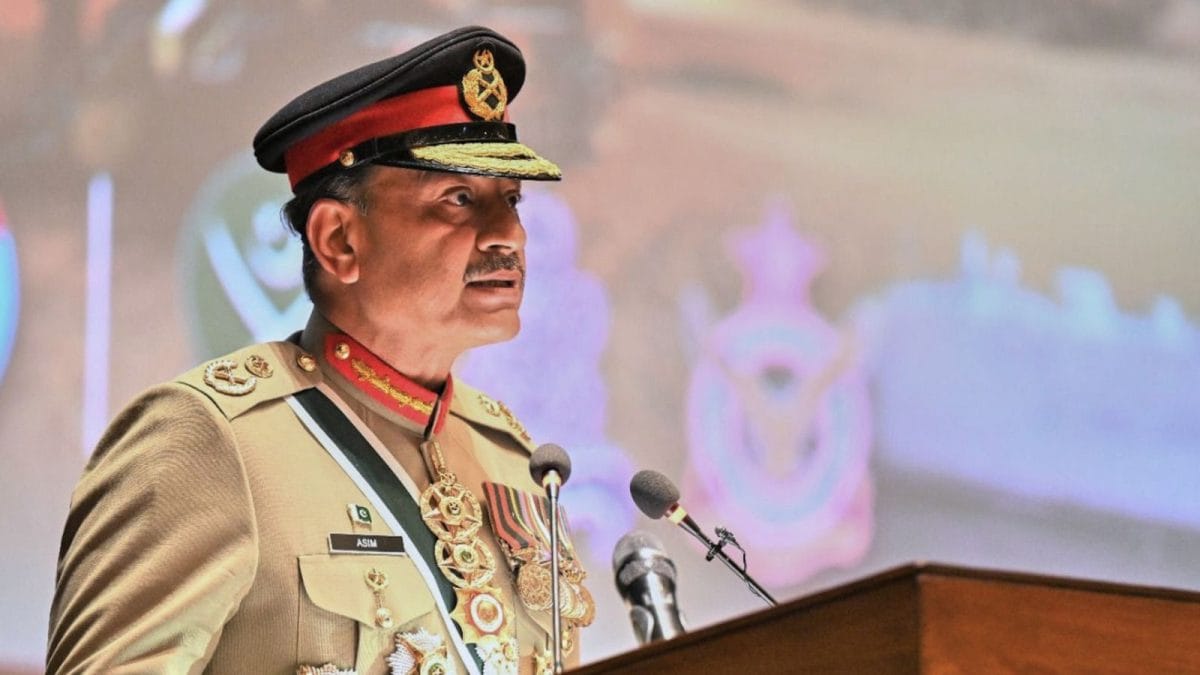Last Updated:November 28, 2025, 17:10 IST
The hostility began years before Imran Khan’s arrest, rooted in personal slights, public accusations and a rare breakdown of civil–military boundaries

Imran Khan’s supporters have already started demanding that he be freed from Adiala Jail as they fear a threat to his life. (IMAGE: REUTERS)
The tense standoff between Pakistan Army Chief General Asim Munir and jailed former prime minister Imran Khan is often described as political, sometimes as institutional, and increasingly as ethnic. But at its core, the rupture is deeply personal. What began years ago as a clash of egos and accusations has today become one of Pakistan’s most destabilising power struggles, resurfacing sharply amid rumours of Imran Khan’s death in jail and unprecedented silence from the state.
The Crisis Over Imran Khan’s Whereabouts
In November, an Afghan news outlet reported that Imran Khan might have died in custody. The story landed in a context where, for four weeks, he had not been seen or heard from. Court orders allowing weekly family visits were not implemented. His wife, PTI leaders and lawyers had no access to him, and neither Adiala Jail authorities nor Punjab’s senior police officials could explain why visits had stopped.
On Thursday, thousands of supporters gathered outside Adiala Jail, chanting and demanding answers. People were not asking for statements; they were asking for evidence that he was alive. In the past, when rumours about Khan’s death had circulated, the government had quickly moved to issue clarifications. This time, the weeks of silence about his condition, followed by the refusal to implement court-ordered meetings, created a different kind of anxiety.
Imran Khan’s party, Pakistan Tehreek-e-Insaf (PTI), described Asim Munir on X as a “powerless, insecure dictator masquerading as a general" and accused him of using abduction, torture and imprisonment against those who stood with Imran Khan. The party argued that Khan was being kept in complete isolation and that the blackout was deliberate.
This crisis did not emerge in isolation. It sits on top of years of personal and political hostility between Munir and Khan.
How The Feud Began
The first clear rupture between the two men dates back to 2018–2019, when Imran Khan was prime minister and Asim Munir was appointed director-general of the ISI. Munir’s tenure lasted only about eight months, the shortest in the agency’s history.
Munir had begun looking into corruption allegations linked to Bushra Bibi, Imran Khan’s wife. Khan was reportedly angered by this, and he pushed then army chief Qamar Javed Bajwa to remove Munir from the position. Munir was moved to command a corps in Gujranwala, a prestigious assignment but a clear step away from the direct control he had briefly wielded over Pakistan’s main intelligence service.
For an officer who had reached the pinnacle of the intelligence hierarchy, the removal was widely seen as a professional setback and a personal humiliation.
This episode laid the foundation for a personal grudge.
From Army’s ‘Saviour Project’ To Its Nemesis
For years, Pakistan’s military establishment viewed Imran Khan as a potential saviour. He was seen as a political outsider who could cleanse a discredited system, carry the army’s preferred narrative and offer a new kind of legitimacy to a state often run from behind the scenes by generals.
That relationship deteriorated quickly after he came to power. By 2022, Khan was ousted through a no-confidence vote. He and his supporters increasingly blamed the military leadership for engineering his removal. The sense of betrayal cut both ways: Khan felt the institution had turned against him, while the military saw a leader it had backed now accusing it in public.
Khan’s support base also changed the calculus. He attracted a constituency that included people who had previously stayed away from politics — urban middle-classes, women and young first-time voters — many of whom came to see the army as the central obstacle in Pakistani politics. They were often accused of naivety, but their anger after his ouster was directed squarely at the military, not just at rival parties.
Naming Generals And Breaking Pakistan’s Political Taboos
The rift deepened in the months following Imran Khan’s ouster when he began doing something unusual in Pakistani politics — naming serving generals directly in public speeches. Before his arrest in May 2023, Khan repeatedly identified Asim Munir as the officer he believed was “trying to crush" his party, PTI. He consistently accused Munir of driving actions taken against PTI after his removal from office.
Khan also targeted Bajwa, calling him a traitor, and blamed him for engineering his removal
While Pakistani politicians have criticised the military institutionally in the past, direct personal accusations against serving intelligence officials were rare. Khan’s language signalled that he was no longer willing to keep civil–military tensions contained within traditional boundaries. For the military leadership, this reinforced the perception that Khan was challenging the institution’s internal cohesion and hierarchy.
By the time Asim Munir assumed the post of army chief in November 2022, he was taking command of an institution that believed it was under sustained public attack by a former prime minister, and one with whom he had a personal history.
May 2023 Protests
The decisive break came on 9 May 2023. After repeated failed attempts, Khan was arrested, and his supporters responded in a way no mainstream political force had before. They entered cantonment areas, breached the gates of the army’s General Headquarters in Rawalpindi and ransacked the residence of a senior general in Lahore, filming themselves while damaging property.
For many Pakistanis, it was the first time they saw cantonment life — large houses, manicured lawns, visible privilege — laid bare on social media. For the army, this was a direct challenge to its prestige and control. Munir later called 9 May a “black day" in Pakistan’s history.
The state response followed familiar lines: multiple cases against PTI leaders, mass arrests and moves to try some protesters in military courts. The army also used public messaging campaigns, including songs about martyrs and posters praising the military, and pressured PTI leaders to either leave the party or publicly distance themselves from Khan’s confrontational approach.
From the military’s perspective, 9 May confirmed that Imran’s movement had crossed a red line. From Khan’s perspective, the subsequent crackdown confirmed that the army was determined to crush him politically.
Imran Khan’s Public Criticism Of Munir
Khan faced a cascade of legal cases. By August 2023, he was jailed on graft and related charges.
From jail and through his party, Imran Khan continued to criticise Munir by name. In October 2023, he accused the army chief of turning Pakistan into a “hard state," adding that what he called “Asim Law" suppressed democratic institutions. He alleged that he was kept in total isolation, denied contact with lawyers, family and political colleagues, and argued that the treatment represented political victimisation.
His aide Zulfi Bokhari claimed that Bushra Bibi’s family had been made to wait outside Adiala for over six hours, only to be denied visitation and even the right to deliver daily essentials.
These statements contributed to the impression of a feud driven not only by power calculations but also by personal resentment.
Munir’s Consolidation Of Power
The recent amendments to Pakistan’s constitutional and military framework intensified the dynamics between the two men. In November this year, Pakistan passed the 27th Constitutional Amendment, which amended Article 243 and elevated Asim Munir to the position of Chief of Defence Forces. This change extended his authority across the army, navy and air force, provided lifetime immunity, and expanded his formal powers over key state institutions.
These reforms consolidated his position at a moment of economic strain, rising insecurity, and growing Taliban-linked violence in Khyber Pakhtunkhwa.
As Munir strengthened his institutional position, PTI has argued that these changes enable a crackdown on dissent. The party has claimed that Munir fears Imran Khan’s influence and popularity, which remains significant even after his imprisonment.
Pashtuns, Punjabis And The Deeper Ethnic Wound
Ethnic tensions form an important backdrop to the confrontation. The military and federal institutions are dominated by Punjabis. Pashtuns (Pathans), concentrated in Khyber Pakhtunkhwa and parts of Balochistan, have often felt sidelined and underdeveloped compared to Punjab. Punjab’s control over federal funds has left KP relatively underdeveloped, feeding a sense of injustice.
Recent Pakistani airstrikes in Khost and Paktika, which killed civilians, and the forced return of Afghan refugees in harsh conditions, have fuelled the view among many Pashtuns that the Punjabi-led establishment is acting against them.
In an October column for the diaspora news portal GlobalVillageSpace, Barrister Shahzad Akbar wrote “The latest official rhetoric from the military establishment paints Pashtuns, Afghans, and the people of Khyber Pakhtunkhwa (KP) as the problem, conveniently linking them with Talibanisation and internal insecurity."
Within this context, Imran Khan’s Pashtun identity and PTI’s strength in KP give the feud an added layer.
The reaction to rumours of Imran Khan’s death underscored this volatility. Delhi-based journalist Ninad Sheth wrote on X, “Reports surface of Imran Khan’s killing. If true, the Pashtoon belt could see a chain reaction. Blood feud looms. His martyrdom would ignite fury from Khyber to Kandahar. Pakistan Army’s Asim Munir can’t contain that. And if Imran is alive, this increases pressure for his well-being."
“Why the secrecy? Because the regime led by Asim Munir and Shehbaz Sharif fears even a 30-second clip of Imran Khan will ignite the streets. His support base is massive, and the establishment knows it. When you’re scared of showing a man’s face, it means something is very wrong," Indian filmmaker Abhilash Badli.
Where Things Stand Now
The standoff between Imran Khan and Asim Munir has moved far beyond a dispute between two individuals. The prolonged isolation of the former prime minister, the lack of clarity around his well-being, and the expansion of military authority raise questions about transparency and political inclusion.
As Pakistan confronts economic pressures, internal security challenges and shifting regional dynamics, the unresolved feud between its most influential military leader and its most recognisable political figure continues to drive national uncertainty.

Karishma Jain, Chief Sub Editor at News18.com, writes and edits opinion pieces on a variety of subjects, including Indian politics and policy, culture and the arts, technology and social change. Follow her @kar...Read More
Karishma Jain, Chief Sub Editor at News18.com, writes and edits opinion pieces on a variety of subjects, including Indian politics and policy, culture and the arts, technology and social change. Follow her @kar...
Read More
First Published:
November 28, 2025, 17:10 IST
News explainers It's Personal: Why Asim Munir And Imran Khan Are Locked In Hostility
Disclaimer: Comments reflect users’ views, not News18’s. Please keep discussions respectful and constructive. Abusive, defamatory, or illegal comments will be removed. News18 may disable any comment at its discretion. By posting, you agree to our Terms of Use and Privacy Policy.
Read More

 1 month ago
1 month ago
